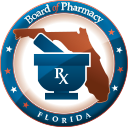Non-traditional compounding should, because of the higher risk presented, be subject to a greater degree of oversight. Sterile products produced in advance of or without a prescription and shipped interstate should be subject to the highest level of controls, established by FDA and appropriate to the activity, similar to cGMP standards applicable to conventional drug manufacturers.
In addition, FDA believes that with noted exceptions, certain products are not appropriate for compounding under any circumstances. These products would include: 1) what are essentially copies of FDA-approved drugs, absent a shortage justification based on the drug appearing on FDA’s shortage list; and 2) complex dosage forms such as extended release products; transdermal patches; liposomal products; most biologics; and other products as designated by FDA. Producing complex dosage forms would require an approved application and compliance with cGMP standards, along with other requirements applicable to manufactured drug products.
FDA believes that there are other authorities that would be important to support this new regulatory paradigm. For example, FDA should have clear ability to collect and test samples of compounded drugs and to examine and collect records in a compounding pharmacy, just as the Agency does when inspecting other manufacturers. FDA should also have clear ability to examine records such as records of prescriptions received, products shipped, volume of operations, and operational records such as batch records, product quality test results, and stability testing results. Such inspections are necessary to determine when a pharmacy exceeds the bounds of traditional compounding, to respond to public health threats, and to enforce Federal standards.
FDA also believes that an accurate inventory of pharmacies engaged in non-traditional compounding would facilitate appropriate oversight and coordination with State regulators. In addition, FDA looks forward to working with the Congress on potential improvements that may include label statements and adverse event reporting that have proven useful in other areas, A user-fee-funded regulatory program may be appropriate to support the inspections and other oversight activities outlined in this framework. We look forward to working with Congress to explore the appropriate funding mechanisms to support this work, which could include registration or other fees, as Congress has authorized and FDA has successfully implemented in other settings.





